|
Progressive Men of
Minnesota
Minneapolis
Journal
1897
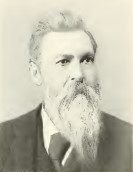 EDMUND
GREGORY BUTTS is Judge of Probate of Washington
County, and resides at Stillwater, he was born
May 7, 1832, in Kortright, Delaware County, New
York. His father, Luther Butts, was a farmer of
some prominence in his neighborhood having held
various town and county offices. In 1849 he was
a member of the state legislature of New York.
He was colonel of militia in the days of what
was known as the “general muster or general
training,” and was a conspicuous figure on the
parade ground for his military bearing and fine
horsemanship. His wife’s maiden name was Sarah
Gregory. Her father, Nehemiah Gregory, was a
Revolutionary soldier. EDMUND
GREGORY BUTTS is Judge of Probate of Washington
County, and resides at Stillwater, he was born
May 7, 1832, in Kortright, Delaware County, New
York. His father, Luther Butts, was a farmer of
some prominence in his neighborhood having held
various town and county offices. In 1849 he was
a member of the state legislature of New York.
He was colonel of militia in the days of what
was known as the “general muster or general
training,” and was a conspicuous figure on the
parade ground for his military bearing and fine
horsemanship. His wife’s maiden name was Sarah
Gregory. Her father, Nehemiah Gregory, was a
Revolutionary soldier.
Edmund Gregory Butts spent his
early youth on his father’s farm and began his
education in the district school. Later he took
several terms at the local academy, and then
entered the State Normal School at Albany, where
he graduated in 1854. With this professional
preparation he taught school for several years.
In connection with his work as a teacher he
pursued the study of law. completing his
professional preparation with the firm of Parker
& Gleason, at Delhi, New York, where he was
admitted to the bar in 1861. At the outbreak of
the war he enlisted with the Thirty-seventh New
York as a private, and was engaged in several
battles, the most important of which was the
Battle of Gettysburg. While engaged as a teacher
he held the position of associate principal of
Delaware Academy. There he had charge of the
class in sciences and mathematics. He was
afterwards called to Roxbury, to principalship
of that academy.
After his discharge from the army
he received, without solicitation, an
appointment to a clerkship in the third auditors
office in the treasury department through the
request of Gen. Garfield. His first intimation
that he was appointed to this position was a
request to report for duty. He remained in this
government position until the winter of 1864,
when, not being satisfied with the prospects
there, and not fancying the idea of becoming a
fixture in a government position, he came West,
arriving at Stillwater January 25, 1865, and has
resided there ever since. Soon after his arrival
he was elected justice of the peace, which
office he held for two years. About this time he
was appointed inspector of the Minnesota state
prison by Governor Austin, and held the position
for twenty years. While
serving the state in that capacity he was sent
as a delegate to the National Prison
Congress at Baltimore. Thirty years ago Judge
Butts was elected fudge of Probate of Washington
County and held the office ten years, he was
succeeded by Judge R. Lehmeke, who died in 1894,
when Mr.
Butts was re-appointed by Governor
Nelson, and still holds the position.
He has been married twice.
His first wife was Miss E. Augusta
White, of Delaware County. New York to whom he
was married in 1867. She came to Stillwater to
be married. She had two children, one of whom.
Miss Minnie Butts, is a teacher in the
Stillwater public schools: the other, a son,
Edmund L. is a lieutenant in the regular army,
having graduated from West Point in 1890.
Mr.
Butts’ second wife was Miss Ida E.
Ellsworth, of South Bend, Indiana, to whom he
was married in 1878, who has borne him five
children, Mollie, Dwight, Florence, Millicent
and Adele. Judge Butts’ political relations have
always been with the Republican party, and his
church connections are with the Episcopal
denomination.
THOMAS CHALMERS
CLARK. No photo Dr. Clark, of Stillwater,
Minnesota, traces his ancestry back to the
landing of the ship Mary and John from England,
at Dorchester, Massachusetts, in 1630. He was
born at Quincy, Massachusetts, April 22, 1853.
His father, Rev. Nelson
Clark, was a native of Brookfield, Vermont,
where he was born in 1813. For thirty five years
he was pastor of Congregational churches in
Vermont and Massachusetts. He removed to
Minnesota in 1880, and soon afterwards died. His
wife, Elizabeth Gilman, was grand-daughter of
Rev. Samuel Hidden, who was for forty-five years
pastor of the Congregational Church at Tamworth,
New Hampshire. She is now living at Stillwater,
Minnesota. As above stated, the family line is
traced back to the early settlement of the
country on the father’s side. The
founder of the family in this country was one of
the company led by Thomas Hooker, which settled
on the Connecticut River, and his descendants
living for several generations at North Hampton,
Massachusetts. On the mother’s side the family
line is traced directly to Anne, daughter of
Thomas Dudley, one of the early colonial
governors of Massachusetts. Anne
Dudley married Silas Bradstreet, who was also a
colonial governor of Massachusetts. The members
of the family on both sides belong to the sturdy
New England stock, whose impress has been so
strongly stamped upon the social, intellectual
and religious life of our
country.
Thomas Chalmers began
his education in the common schools of
Massachusetts and was graduated from Bristol
Academy, at Taunton, Massachusetts in 1870. He
removed to Stillwater, Minnesota, in the fall of
that year and engaged in teaching. He was thus
employed until the spring of 1877. About this
time he commenced the study of medicine with Dr.
W. H. Pratt, of Stillwater, and also served as
hospital steward in the state prison in the
spring of 1877 and until the fall of 1879. He
graduated from the Rush Medical College, in
Chicago, in 1881, as the valedictorian of a
class of one hundred and seventy two. He
returned to Stillwater, where he began to
practice medicine, and is so engaged at the
present time.
Dr. Clark has always taken
an active interest in military affairs. He
enlisted in Company K. First Regiment M. N. G.,
in 1883 at the time of its organization. He went
in as a private, was promoted to first
lieutenant and assistant surgeon in 1886, was
made captain and assistant surgeon in 1894, and
major and surgeon in 1895. He was a member of
the First Regiment and the State Rifle Teams
from 1885 until 1896 he qualified as a sharp
shooter at every encampment held since 1884, and
was decorated as a distinguished rifleman in
1890. Mr. Clark is an ardent Republican. He was
chairman of the Republican County Committee in
1890, and alternate to the Republican National
Convention in Minneapolis in 1892. With
exception of the office of coroner he has never
held any political office, nor has he desired
any. He is a member of the county, state and
national medical societies; a member of the
Association of Military Surgeons of the United
States: is one of the board of managers of the
Minnesota Society of the Sons of the American
Revolution; is a Knights Templar and an active
member of the Masonic order; is past master of
St. John’s Lodge, No. 1. and past high priest of
the Royal Arch Chapter, No. 17. Dr.
Clark is also active in Christian work. He is a
member and elder of the First Presbyterian
Church of Stillwater. He was married in June
1882, to Miss Sarah A. Stephens, of New York
City, and has three children
living.
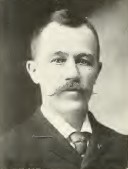 WILLIAM EDWARDS
EASTON is the senior editor and publisher of the
Stillwater Gazette. He was born in Mesopotamia,
Trumbull County, Ohio, December 27, 1850, the
son of Augustus B. Easton
and Julia Burke (Easton). On his father’s side
he is descended from the early settlers of
Massachusetts, dating back to the Pilgrim
fathers.
His grandfather, on the paternal side,
made the journey on foot from Hawley,
Massachusetts, his native place, to the Western
Reserve, in northwestern Ohio, in 1820. Little
is known of Mr. Easton’s ancestry on his
mother’s side, she having been an adopted
daughter of William Edwards of Youngstown, Ohio. WILLIAM EDWARDS
EASTON is the senior editor and publisher of the
Stillwater Gazette. He was born in Mesopotamia,
Trumbull County, Ohio, December 27, 1850, the
son of Augustus B. Easton
and Julia Burke (Easton). On his father’s side
he is descended from the early settlers of
Massachusetts, dating back to the Pilgrim
fathers.
His grandfather, on the paternal side,
made the journey on foot from Hawley,
Massachusetts, his native place, to the Western
Reserve, in northwestern Ohio, in 1820. Little
is known of Mr. Easton’s ancestry on his
mother’s side, she having been an adopted
daughter of William Edwards of Youngstown, Ohio.
William Edwards
attended the common schools while a lad, but
began early to learn the printer’s trade. He was
so small when he began in this business that he
was obliged to stand on a chair in order to
reach the boxes in the printer’s case. His
parents came to Stillwater, August 7, 1857, when
it was a small place, noted principally for
logs, rough fare and men wearing red shirts and
moccasins. His father was employed on the old
Messenger and the son has followed this calling
all his actual business life, with the exception
of about six months’ experience in a grocery
store. He soon graduated, however, from that
business with the conviction that the handling
of groceries was not to his liking.
On the sixth of
August, 1870, he became associated with his
father and began the publication of the
Stillwater Weekly Gazette, an independent
newspaper. In 1876 he was admitted to
partnership, which continued until January 1,
1883, the senior Easton then disposing of his
interest to S. A. Clewell. The business has
since been conducted under the style of the
Gazette Printing Company. On May 15, 1882, was
issued the first number of the Daily Gazette.
The daily edition was continued until December
of the same year, when it was suspended because
unprofitable. On
August 25, 1883, the daily edition was resumed
and has been continued successfully ever since.
March 7, 1896, William Edwards Easton secured
control of the paper. On March 14, 1896, Senator
W. C. Masterman purchased the interest of S. A.
Clewell in the job department, the business
being consolidated, and is now conducted under
the firm name of Easton & Masterman, who are
sole owners of the Daily and Weekly
Gazette.
Mr. Easton is one of the editors and
publishers of the paper, and thoroughly familiar
with all the details and requirements of daily
newspaper publication. His life
has been one devoted to hard work, and such
property interests as he has acquired have been
secured solely by faithful attention to business
and a successful management of his affairs.
During the war times he was engaged as a carrier
in delivering the old St. Paul Press and Pioneer
in Stillwater, and became much interested in the
progress of the conflict. As he puts it, he
“Didn’t do much to put down the rebellion but
was very patriotic.”
Mr. Easton is a Mason, a
member of the Knights of Pythias and Past
Chancellor of the order with which he has been
connected over twenty years. He is a member of
the Royal Arcanum serving one term as vice
regent.
He is a member of the Stillwater Lodge of
Elks. He was a charter member of the old
volunteer fire department of Stillwater,
organized in 1871, and serving continuously
until 1884. He was an original member of the
famous Blue Cart Company. He was secretary and
treasurer for several years of the organization.
He was one of the original members of Company K,
First Regiment National Guards, organized April
5, 1883, was elected captain in 1893, but was
obliged to decline the honor owing to business
engagements. He is a member and director of The
Stillwater Club, and vice president of the St.
Croix Savings & Loan Association. Mr. Easton
was married December 19, 1878, to Josephine A.
McGowan, at Stillwater. They have two children,
Ned, a lad of thirteen, and Florence L., five
years of age.
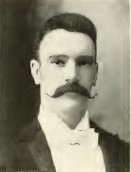 CHARLES W. MERRY
The subject of this sketch is a dentist
practicing his profession at Stillwater,
Minnesota.
His father, B. G. Merry, served in the
civil war in a Maine regiment, and was a major
when mustered out of service. He removed to
Minnesota in 1869 with his family, settling at
Stillwater, where he was engaged in the
profession of dentistry until his death, March
27, 1895. He was a prominent member of the
Masons, Knights of Pythias, Loyal Legion and the
G. A. R. His wife’s maiden name was Charlotte F.
Coburn. CHARLES W. MERRY
The subject of this sketch is a dentist
practicing his profession at Stillwater,
Minnesota.
His father, B. G. Merry, served in the
civil war in a Maine regiment, and was a major
when mustered out of service. He removed to
Minnesota in 1869 with his family, settling at
Stillwater, where he was engaged in the
profession of dentistry until his death, March
27, 1895. He was a prominent member of the
Masons, Knights of Pythias, Loyal Legion and the
G. A. R. His wife’s maiden name was Charlotte F.
Coburn.
Charles W. was born
at Bath, Maine, June 7, 1864. He attended the
public schools of Stillwater until he was
seventeen years of age. He then took a course at
the Pennsylvania College of Dental Surgery,
graduating with the class of 1883. After
graduating he worked in the office with his
father on a salary for four years. He then
purchased a half interest in the business, the
partnership lasting until 1892, when it was
dissolved by mutual consent, each going into
business for himself. March 30, 1885, Dr. Merry
was appointed a member of the state board of
dental examiners by Governor Hubbard for a four
years’ term. He was secretary of the board for
two years and president for one year.
He has always taken an
active interest in state militia affairs, and
was a charter member of Company K, First
regiment, of which company he was a member for
six years. He is a member of the Masons and is a
Mystic Shriner. and also belongs to the Knights
of Pythias Royal Arcanum, the Elks and Sons of
Veterans. He has never united with any church.
He was married May 17, 1887, to Miss Ella
McKusick daughter of Hon. John McKusick, and has
two children. Charles Raymond and Ora McKusick.
Mrs. Merry died January 31,
1891.
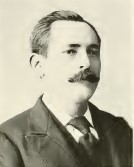 FREDERICK CARL
NEUMEIER of Stillwater, is a native of
Langenberg, near Duesseldorf, on the Rhine,
Germany, where he was born February 20, 1857.
His father, Christian Neumeier, was by
occupation a mechanic. Up to 1866 he was in good
financial circumstances. He discovered and
operated a copper mine for which he had an offer
from an English Company of sixty-eight thousand
marks, but before the sale had been completed
the war of 1866 broke out and he lost his mine
and everything he possessed. His wife’s maiden
name was Henriette Haut a native of Wiesbaden,
on the Rhine, whose father was a hotel keeper in
1824.
In 1864 he came to America, and his
family never heard of him afterward. The
Neumeier ancestry was of noble rank. The
original name was Von Sande, but later they
adopted the name of Neumeier. A
brother of Christian Neumeier held high rank in
the Prussian army, and was the commanding
officer of the Fifth Infantry Corps at Odessa,
on the Black Sea, where he received the title of
“Ritter p. p.” FREDERICK CARL
NEUMEIER of Stillwater, is a native of
Langenberg, near Duesseldorf, on the Rhine,
Germany, where he was born February 20, 1857.
His father, Christian Neumeier, was by
occupation a mechanic. Up to 1866 he was in good
financial circumstances. He discovered and
operated a copper mine for which he had an offer
from an English Company of sixty-eight thousand
marks, but before the sale had been completed
the war of 1866 broke out and he lost his mine
and everything he possessed. His wife’s maiden
name was Henriette Haut a native of Wiesbaden,
on the Rhine, whose father was a hotel keeper in
1824.
In 1864 he came to America, and his
family never heard of him afterward. The
Neumeier ancestry was of noble rank. The
original name was Von Sande, but later they
adopted the name of Neumeier. A
brother of Christian Neumeier held high rank in
the Prussian army, and was the commanding
officer of the Fifth Infantry Corps at Odessa,
on the Black Sea, where he received the title of
“Ritter p. p.”
When Frederick Carl
was four years of age he was sent to the
kindergarten, and two years later to the public
schools, which he attended until the age of
nine. He then went to the high school. At that
time war broke out between the French and
Prussians, and his parents removed to
Duesseldorf and were employed in a paper mill.
In 1880 Frederick came to America, his first
stopping place being Nora Springs, Iowa, where
he was employed on a farm. In the winter of 1880
and 1881 he attended the public school in order
to learn the English language. In the spring of
1881 he was employed as a clerk in the
mercantile business, and in May of the same
year, went to Chicago to work at his trade as a
machinist. In 1882 he went west as far as
Denver, but returned to St. Paul, and finally
obtained employment at Stillwater with the
Seymour-Sabin Thresher Company as a skilled
mechanic.
In November, 1886, he
became interested in the St. Croix
Post, a German newspaper, of which J. Duel was
proprietor. Mr. Neunieier was given the
management of the establishment, and shortly
afterward, upon the death of Mr. Duel, R. Lehmicke
and Mr. Neumeier bought the Post, and in 1890
Mr. Lehmicke sold his interest to Mr. Neumeier,
who has conducted the paper alone ever since.
The same year he started a new German paper in
the interest of the German order, the Hermanns
Son of the West, which is today the official
organ of that order in this state and
Washington. In 1893 he also started an English
paper in partnership with N. A. Nelson, called
the Washington County Journal. In this way Mr.
Neumeier became the proprietor of two German
papers, and had a partnership with an English
publication. His papers are independent in
politics, with a leaning toward Democracy. Mr.
Neumeier is a member of the Sons of Hermann, the
Royal Arcanum, the Turnverein and the Stillwater
Maennerchor. He is grand president of the Sons
of Hermann, and is now serving his second term
in that office. He was also for four years grand
vice president of the order. Mr.
Neumeier is a member of the German Lutheran
Church, and was married February 20, 1884, to
Catharina Anna Glade, daughter of John Glade, of
Stillwater, of which place Mrs. Neumeier is a
native. They have three children Mabel Gay, Karl
Glade and Fritz
George.
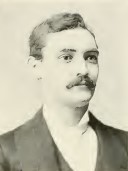 NICHOLAS A.
NELSON is an
editor and publisher at Stillwater, Minnesota.
His father, Nels Nelson, is a farmer residing
near Cyrus, Pope County, Minnesota. Nels was for
many years a sailor on the Atlantic, and later
on the great lakes, but was forced to give up
his chosen vocation because of an injury which
affected his health. He came to Minnesota and
engaged in agriculture. NICHOLAS A.
NELSON is an
editor and publisher at Stillwater, Minnesota.
His father, Nels Nelson, is a farmer residing
near Cyrus, Pope County, Minnesota. Nels was for
many years a sailor on the Atlantic, and later
on the great lakes, but was forced to give up
his chosen vocation because of an injury which
affected his health. He came to Minnesota and
engaged in agriculture.
Nicholas A. was born
in Skien, Norway, November 4, 1868, and came to
America with his parents when little more than a
year old. They located at Milwaukee, and soon
afterward his mother died. The only school
education Nicholas received was confined to the
public schools of Milwaukee, and he was obliged
to give up attending school at the early age of
thirteen, when his father moved to Minnesota.
Since that time such education as he has had has
been acquired solely through his own efforts. He
came to Minnesota early in the summer of 1881,
his father having purchased a farm near Cyrus.
Nicholas worked with his father on the farm, and
while yet a young lad hired out with a threshing
crew, in which capacity he earned the first
money he ever possessed.
The following spring,
1883, he went to the Black Hills, where he led a
rough life among freighters and cattle men until
the fall. He then obtained a position in the
telephone office in Rapid City.
Subsequently he secured employment in a
printing office, learning the business of
typesetting and commenced the career which he
has followed ever since. In 1888 he went to
Stillwater and was engaged as a reporter on the
Democrat. Later he became city editor of the
Messenger, which position he filled acceptably
until the fall of 1892. The following March he
formed a partnership with F. C. Neumeier and
began the publication of the Washington County
Journal, of which paper he is now the editor and
part owner. He began business with practically
no capital, but by industry and careful
management he has made a success of his venture.
He has never been
affiliated closely with any political party. In
national affairs he has generally been an
advocate of Democratic principles, but in state
and local politics has usually supported those
candidates which he considered best qualified
for office, regardless of their political
relations. He takes an active interest in
military matters. He is a member of Company K,
First Regiment National Guard, and is third
sergeant of the company. He is also a member of
the Knights of Pythias, of the Elks and of the
Stillwater Club, and. also, of the First
Presbyterian Church of that city. He has not
married.
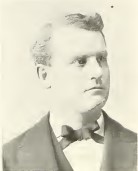 JOHN
CLINTON NETHAWAY was born at Albany, New York,
November 12, 1857. After receiving a common
school education at Albany he entered the
Cobleskill, New York, academy, graduating from
that institution in June, 1874. He immediately
began the study of law in the office of Lamont
& Baker, a leading law firm at Cobleskill. JOHN
CLINTON NETHAWAY was born at Albany, New York,
November 12, 1857. After receiving a common
school education at Albany he entered the
Cobleskill, New York, academy, graduating from
that institution in June, 1874. He immediately
began the study of law in the office of Lamont
& Baker, a leading law firm at Cobleskill.
When Judge Lamont was
elected to the state senate, Mr. Nethaway was
appointed his private secretary, the duties of
which office brought him back to his birthplace.
During his spare hours he availed himself of an
opportunity of a course of lectures at the
Albany Law School, in the meantime continuing
his studies in the law office of Smith, Bancroft
& Moak, one of the leading firms at Albany.
In February, 1878, having completed his course
at the law school, Mr. Nethaway applied for
admission to the bar before the general term of
the supreme court at Albany.
After passing an
exceptionally creditable examination he was
admitted. About the same time he started for the
extreme West and landed at Heron Lake, Jackson
County, Minnesota. After remaining there about
six weeks, he decided that Stillwater,
Minnesota, afforded flattering inducements, and
he located there, arriving June 18, 1878. He
immediately associated himself with the late
Levi E. Thompson, a prominent attorney of this
state. This firm continued for two years, after
which he became connected with the firm of
McClure & Marsh at Stillwater. In 1881, when
Judge McClure was appointed district judge of
the First judicial district, a new firm was
organized, composed of Fayette Marsh of
Stillwater; Jasper N. Searles, of Hastings, and
the subject of this sketch, under the firm name
of Marsh, Searles & Nethaway, which
continued until April, 1884.
Mr. Nethaway was then
elected to the municipal bench of Stillwater,
which office he continued to fill until April,
1894, when he refused a re-election. After his
first term, the term of office was lengthened
from two to four years. He was elected three
times, receiving at each election the nomination
and votes without opposition. Although a strong
Democrat, he was indorsed each time by the
Republicans. In a
list of twenty-six cases appealed from his
decision, only two were reversed by the supreme
court. At the expiration of his term of office
he returned to the practice of law and opened an
office in Stillwater, making criminal law a
specialty. He has defended five persons accused
of murder, and received a verdict of acquittal
for four, and for the other one a verdict of
murder in the second degree. In the campaign of
1890, when James N. Castle was the Democratic
candidate for congress and was elected, Mr.
Nethaway acted as secretary to the congressional
committee. He has always taken an active part in
politics, and served the state central committee
liberally as campaign speaker.
In 1892, Mr. Nethaway
was chosen as Democratic candidate for attorney
general. Mr. Nethaway is a tariff reform
Democrat, and has always supported those
principles. With a change of administration in
national affairs, he was a candidate for the
office of district attorney, but though a bitter
strife between the rival candidates the
nomination finally went to a party who had not
been a candidate. Mr. Nethaway took part in the
campaign of Congressman Baldwin in 1894, and
increased his vote, although Mr. Baldwin
was defeated.
The subject of this
sketch was the son of Clinton Nethaway, of
Scotch and Irish descent, a merchant for many
years at Albany, New York. The family is of good
old Colonial stock, and the ancestors of the
Colonial period took an active part in the wars
with the Indians and the British. At the close
of the Revolutionary war the progenitor of this
family located at Schoharie Hill, which has been
the ancestral home ever since. Mr.
Nethaway’s mother was Maria Catherine
Hawn.
She was of Dutch descent. Her
grandfather, Peter Hawn, was a soldier in the
War of the Revolution, and was also engaged in
the wars against the Indians. He took part in
the battle of Ticonderoga.
Mr. Nethaway was married
June 18, 1884, at Stillwater, to Miss Cora
M.
Hall. They have had two children, Jay A.,
now deceased, and Clinton
H.
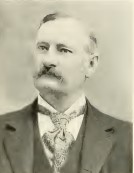 GEORGE PARKER
The name which stands at the head of this sketch
is that of the mayor of Hastings, a broadminded,
public-spirited man, jealous of the reputation
of the city which he represents, and deserving
of credit for the efficient and able manner in
which he has conducted its affairs. George
Parker was born in the village of Pakenham,
Ontario, in 1849. He lived with his parents
until twenty-six years of age, in the meantime
acquiring a good, liberal education, and also
spending considerable of his time in work on the
farm. GEORGE PARKER
The name which stands at the head of this sketch
is that of the mayor of Hastings, a broadminded,
public-spirited man, jealous of the reputation
of the city which he represents, and deserving
of credit for the efficient and able manner in
which he has conducted its affairs. George
Parker was born in the village of Pakenham,
Ontario, in 1849. He lived with his parents
until twenty-six years of age, in the meantime
acquiring a good, liberal education, and also
spending considerable of his time in work on the
farm.
In 1875 he engaged in
the mercantile business in the province of
Manitoba, but removed to St. Vincent,
Minnesota, in 1878, where he established himself
in the livery business. In 1882 Mr. Parker again
engaged in farming in Pembina, North Dakota, but
the following year he entered upon the business
of railroad contracting and building. The first
contract was on the Canadian Pacific westward
from Winnipeg. After the completion of that line
he obtained a contract in Iowa on the extension
of the Chicago, Milwaukee & St. Paul from
Cedar Rapids to Ottumwa. In the fall of 1884 he
built a small portion of the then Minnesota
Northwestern, now the Chicago- Great Western
railroad. It was about this time that he located
in Hastings, where he has since resided.
Mr. Parker is a
Republican in politics, and has always taken an
active interest in public affairs. In the spring
of 1895 he was elected mayor of Hastings on the
Republican ticket, and re-elected in 1896. He is
a member of the I. O. O. F. and the A. O. U. W.
He is a member of the Baptist church, and was
married April 20, 1875, at Pakenham, Ontario, to
Miss Mary M.
Hemenway. Two children have been born to
them, Mary Maud and Dora May, of whom the former
is deceased.
Mr. Parker’s parents
were of Irish extraction, born in the North of
Ireland.
His father, George Parker, came to
Ontario when but a boy, locating at Perth, where
he learned the cooper’s trade. He subsequently
conducted a large coopering establishment at
Pakenham with satisfactory financial results. He
was a strong supporter of the Reform party and
an active participant in public affairs. His
wife, the mother of George Parker, was Miss
Abalinda Eliza Toughey, who emigrated with her
parents from Ireland to Quebec in her childhood.
Later she became a resident of Perth, where she
was married.
Major Parker, of Hastings,
is an ardent advocate of temperance principles
and a total abstainer himself, and has not only
done much to encourage the virtue of temperance
in the city over which he presides, but he has
also done much to attract capital and build up
the commercial interests of that
community.
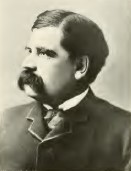 DWIGHT
MAY SABIN ex-United States Senator of Minnesota,
was born at Manlius, Illinois, April 25, 1843.
Mr. Sabin was the eldest son of Horace Carver
Sabin and Maria Elizabeth Webster (Sabin). DWIGHT
MAY SABIN ex-United States Senator of Minnesota,
was born at Manlius, Illinois, April 25, 1843.
Mr. Sabin was the eldest son of Horace Carver
Sabin and Maria Elizabeth Webster (Sabin).
The Sabin family were
of Scotch descent and came to America in
1740.
They settled in New Hampshire and
Connecticut, and Horace Carver Sabin was born in
Windham County, Connecticut, on a beautiful farm
owned by his father, Jedediah Sabin. In early
manhood, Horace Carver Sabin moved to the
Western Reserve, Ohio, and later came farther
West to Ottawa, Illinois, then a thriving
trading village at the head of navigation on the
Illinois river. Here he engaged in farming and
became an extensive breeder of blooded cattle,
having the first business of this kind
established in the state. He was one of the
original abolitionists, and his protection and
services were often accorded to fugitive slaves
passing through that section on their perilous
way towards safety and liberty. The Sabin
residence was in fact, one of the important
stations on what was known as the underground
railroad to which escaped negroes were directed
for assistance and where they invariably
received help and a hearty “God speed.” Horace
Carver Sabin was a friend and co-laborer with
Owen Lovejoy and John F.
Farnsworth, and was an acquaintance and
great admirer of Abraham Lincoln. All of these
gentlemen were frequently guests at his house
when on professional and political trips made in
those days generally on horse back, railroads
being as yet unknown in that new country. Mr.
Sabin, although evincing a deep interest in the
affairs of the state and the nation, declined
strictly political offices. He held, however,
for many years positions of trust and
responsibility on county and state boards, and
was at one time member of the state canal and
land commission. He was also a delegate to the
Republican national convention at Chicago which
nominated Abraham Lincoln for president. On
account of his failing health Mr. Sabin, with
his wife and two sons, Dwight May and Jay H.,
returned to the old home in Connecticut at the
urgent request of his father, Jedediah, who in
his declining years wished for the presence of
his only son. Jedediah
died in 1864.
While living on the
Connecticut farm, Dwight May attended a little
district school for three years, when, his own
father’s health becoming seriously impaired, the
care of the farm and the somewhat extended
lumber business devolved largely upon the young
man. He continued in this work until he was
seventeen years of age, when he went to Phillips
Academy for one year in order to pursue a course
of study in higher mathematics and civil
engineering, after which he returned to the
management of his father’s business. His life
remained thus uneventful until Lincoln’s call
for volunteers in 1862, when his patriotism
prompted him to offer his services to Gov.
Buckingham, of Connecticut, who sent him to
Washington to join a Connecticut regiment. He
was unable to pass the medical examination,
however, and was rejected for active service on
account of pulmonary weakness and his youth. He
was then assigned to the quartermaster’s
department, and was afterwards given a first
class clerkship in the third auditor’s office in
Washington, which position he retained until
June, 1863. At that time he was transferred to
the commissary department of Beaufort’s Cavalry
Brigade, and reached the scene of action
immediately prior to the battle of Gettysburg.
He remained with this brigade during many
subsequent engagements, following Lee’s
retreating army.
The following year he
was called home by the death of his father, and
was appointed executor of the family estate,
together with his mother. He was occupied with
these affairs and other business enterprises
until 1867. In the autumn of that year the
delicacy of his constitution becoming more
apparent, physicians advised a change of
location, and Minnesota was chosen for climatic
reasons.
He first located in Minneapolis, where,
during the ensuing winter, he busied himself
investigating the lumber outlook. In the spring
of 1868 an opportunity to enter this business in
Stillwater presented itself and he settled
there, where he has since continued to reside.
In connection with the
lumber business he carried on other enterprises,
building up the manufacture of threshing
machines, engines and railway cars. This
business gradually assumed immense proportions,
giving employment at one time to over
thirty—five hundred men. He also became a
promoter and partner in lumber operations at
Cloquet, Minnesota, on the St. Louis river.
Mr.
Sabin, as his ancestry would indicate,
has always been a Republican and in 1870 he was
elected to the state senate, where he served
until 1883, when he was sent to the United
States senate to succeed the late William
Windom. While a member of the senate, Mr. Sabin
was the chairman of the railway committee,
member of the Indian and pension committees, and
secured pensions for over eight hundred old
soldiers. He made no pretense to oratory, and
was not known as a speech-making senator, but
rather a hard working member in the interest of
his state, especially in the line of
transportation. Through his efforts, aided by
Senator Palmer, of Michigan, he was able to
secure large appropriations for the speedy
completion of the new canal at Sault Ste. Marie.
He was also instrumental in securing large
appropriations from congress for the improvement
of the Mississippi and other rivers. Mr. Sabin
was prominent in the councils of his party, and
for several years previous to his election as
United States senator he was Minnesota’s member
of the Republican National Committee, and at the
death of Gov. Jewell, in December, 1883, was
elected his successor to the chairmanship, and
in this capacity presided over the Republican
National Convention in Chicago in 1884. Mr.
Sabin is married and has three adopted
daughters. Since his retirement from the senate
he has been actively interested in business,
especially in the lines of lumber and
iron.
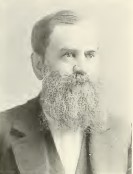 IRVING TODD of The
Hastings Gazette, is one of the oldest newspaper
men of the state. He came to the Northwest in
1857, and since 1860 has been continuously
identified with country journalism in this
vicinity. Through both parents Mr. Todd is
descended from old Colonial stock of the sturdy
type which made New England and the Middle
States the bulwark of the Revolution. The family
in America dates from Abraham Todd, who was born
in Scotland in 1710, and as a Presbyterian
minister settled at Horse Neck, Connecticut. He
died just before the war, in 1772. Some of his
descendants moved to Westchester County, New
York and have for generations been identified
with that portion of the Empire State. Joseph N.
Todd, father of Irving, was a miller in good
circumstances, living at Cross River. He married
Miss Sarah A. Reynolds, granddaughter of
Lieutenant Nathaniel Reynolds, a Revolutionary
soldier.
Her family was prominent in Westchester
and like that of her husband, thrifty and
well-to-do. In 1856
Mr. Todd, in company with a brother and
brother-in-law, was induced to invest quite
largely in a saw mill at Prescott, Wisconsin,
but in the following season—the panic year of
1857 —went down in the general financial
crash.
However, the investment was the means of
shifting the life of his son from the
civilization of New York to the then new West. IRVING TODD of The
Hastings Gazette, is one of the oldest newspaper
men of the state. He came to the Northwest in
1857, and since 1860 has been continuously
identified with country journalism in this
vicinity. Through both parents Mr. Todd is
descended from old Colonial stock of the sturdy
type which made New England and the Middle
States the bulwark of the Revolution. The family
in America dates from Abraham Todd, who was born
in Scotland in 1710, and as a Presbyterian
minister settled at Horse Neck, Connecticut. He
died just before the war, in 1772. Some of his
descendants moved to Westchester County, New
York and have for generations been identified
with that portion of the Empire State. Joseph N.
Todd, father of Irving, was a miller in good
circumstances, living at Cross River. He married
Miss Sarah A. Reynolds, granddaughter of
Lieutenant Nathaniel Reynolds, a Revolutionary
soldier.
Her family was prominent in Westchester
and like that of her husband, thrifty and
well-to-do. In 1856
Mr. Todd, in company with a brother and
brother-in-law, was induced to invest quite
largely in a saw mill at Prescott, Wisconsin,
but in the following season—the panic year of
1857 —went down in the general financial
crash.
However, the investment was the means of
shifting the life of his son from the
civilization of New York to the then new West.
Irving was born at
Lewisboro, New York, July 23, 1841, receiving a
good common school education. In the spring of
1857 he came out to Prescott with his father to
look after their business interests, and during
that summer worked in the saw mill, running
engine and sawing lath. He spent the following
winter at the old home in New York, and in the
spring the family moved West and settled
permanently at Prescott. For a year or so Irving
divided his time between farm work and school,
in 1859 making his first acquaintance with what
he has aptly called “the best school he ever
attended.” the printing office. June 18,
1860, he entered into a years contract with C.
E. Young, of The Prescott Transcript, at a
salary of one dollar per week and board.
Previous to this the young man had been fired
with the desire to enter the life of a printer
and newspaper man. He had read with enthusiasm
Benjamin Franklin’s autobiography—the first
influence toward journalism. He was an apt
student at the new employment. Within three
months he was acting as foreman of the office,
besides doing most of the editorial work and all
of the proof reading. At the end of the year he
was considered more than an average journeyman.
The Transcript, however, had been undermined by
political rivalry, and Mr. Todd secured
employment as a compositor on The Hastings
Conserver, then being run as a daily to supply
the demand for war news. In a few months the
daily edition was discontinued, Mr. Todd going
back to Prescott and assuming editorial charge
of The Journal, which Lute A. Taylor had moved
in from River Falls. After some further
experience on The Hudson Star, Mr. Todd bought
the plant of The Conserver, then defunct.
November 17, 1862. issuing his first paper the
following Thursday. He has since been identified
with Hastings. Four
years later the paper was consolidated with The
Independent as The Hastings Gazette Todd &
Stebbins, editors and proprietors. March 4,
1878, Mr. Todd bought out Mr. Stebbins’ half
interest. The present daily issue was commenced
September 18, 1882, and August 27, 1887, Irving
Todd, Jr., was given an interest in the
business, the date being his twenty-first
birthday.
The firm has since been Irving Todd &
Son. They have been financially successful.
Mr. Todd has been an active
Republican since the organization of the party.
In 1867-8 he was assistant doorkeeper of the
house of representatives at Washington, and was
collector of internal revenue at St. Paul from
January 1, 1872, to April 1, 1876. In the
Masonic fraternity Mr. Todd is
past master of Dakota Lodge, No. 7; past high
priest of Vermillion Chapter, No. 2: past
district deputy grand master, past deputy grand
high priest, and a charter member of Minnesota
Consistory, No. 1. He has written the reports on
foreign correspondence for the Grand Lodge of
Minnesota since 1889. Todd’s Digest, now in its
fourth edition, is standard authority in this
jurisdiction. July 13, 1865, Mr. Todd was
married to Miss Helen Lucas. Their children,
Irving and Louise, are now grown. Mrs. Todd died
April 15, 1896.
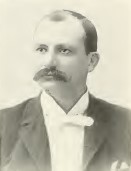 HENRY
WOLFER Minnesota is fortunate in having at the
head of its chief penal institution a man who
has achieved a national reputation as a
penologist. Henry Wolfer is of German descent.
His father, John Wolfer, was a farmer who came
from Germany when eighteen years of age, and
settled near Munith, Michigan. He soon owned a
good farm and was considered a thrifty,
well-to-do man. He reared a family of thirteen
children, nine of whom are now living. His wife,
Sarah Wolfer, was of German parentage, coming
from the old Dutch stock of Pennsylvania. John
Wolfer was the youngest of seven children, none
of whom, except one sister, accompanied him to
America. All his brothers became well-to-do
farmers in the old country. HENRY
WOLFER Minnesota is fortunate in having at the
head of its chief penal institution a man who
has achieved a national reputation as a
penologist. Henry Wolfer is of German descent.
His father, John Wolfer, was a farmer who came
from Germany when eighteen years of age, and
settled near Munith, Michigan. He soon owned a
good farm and was considered a thrifty,
well-to-do man. He reared a family of thirteen
children, nine of whom are now living. His wife,
Sarah Wolfer, was of German parentage, coming
from the old Dutch stock of Pennsylvania. John
Wolfer was the youngest of seven children, none
of whom, except one sister, accompanied him to
America. All his brothers became well-to-do
farmers in the old country.
Henry Wolfer was born
on the farm at Munith, Michigan, March 23, 1853.
He received a common school education in the
district country school, such as could be
obtained by attending during the winter months
and working on the farm during the summer. This
continued until he was eighteen years of age. He
then made a bargain with his father for the
purchase of the remaining three years’ time
before he became of age, and gave him a note fur
two hundred dollars. Henry immediately started
out West and arrived at Joliet, Illinois, June
16, 1871. There he applied to Major Elmer
Washburn, then warden of the Illinois state
penitentiary, for a position in that
institution. After
two persevering interviews he was finally
appointed wall guard, and discharged the duties
so satisfactorily that he was very shortly
afterwards, although yet a mere youth, appointed
overseer of one of the largest shops in the
prison.
When about nineteen years of age he sent
his father the two hundred dollars with interest
and took up his note. He then began an evening
course in a commercial college at Joliet and
continued until he had graduated in bookkeeping
and commercial law. At the age of twenty-four
Henry Wolfer had saved up and placed at interest
two thousand two hundred dollars. He continued
in the service of the Illinois state
penitentiary in various official capacities
under five different wardens, filling nearly
every office in that institution, covering a
period of about fourteen years, the last four
years acting as steward under the well known
prison manager and penal reformer Major R. W.
McLaughry. In September, 1885, through the
influence of Major McLaughry, and other friends,
Mr. Wolfer was appointed deputy superintendent
of the Detroit House of Correction, under
Captain Joseph Nicholson. Captain Nicholson
enjoys the enviable reputation of knowing not
only how to conduct a prison on broad humane
principles, but how to make it a success
financially as well. That institution has been
more than self-sustaining for a period of
sixteen years. Mr. Wolfer’s services continued
as deputy superintendent for nearly seven years,
when he was called to the state of Minnesota to
take the position of warden of the state prison
at Stillwater. Mr.
Wolfer ranks among the most scientific and
progressive of the penal officials of the
country.
He is always in demand at national prison
congresses and the conferences of the charities
and corrections, and administers the office
which has been entrusted to him with great
ability.
Mr. Wolfer
has always been a Republican. He has been a
member of the Masonic fraternity for sixteen
years, and is a member of the Order of
Elks.
He was married April 27, 1S76, to Miss
Alice A.
Suylant, of Munith, Michigan. They have
four children, Harold J., Frank C., Charles R.
and Gertrude M.
The information
on Trails to the Past © Copyright
may be used in personal family history research, with source citation. The pages in entirety may not be duplicated for publication in any fashion without the permission of the owner. Commercial use of any material on this site is not permitted. Please respect the wishes of those who have contributed their time and efforts to make this free site possible.~Thank you! |



